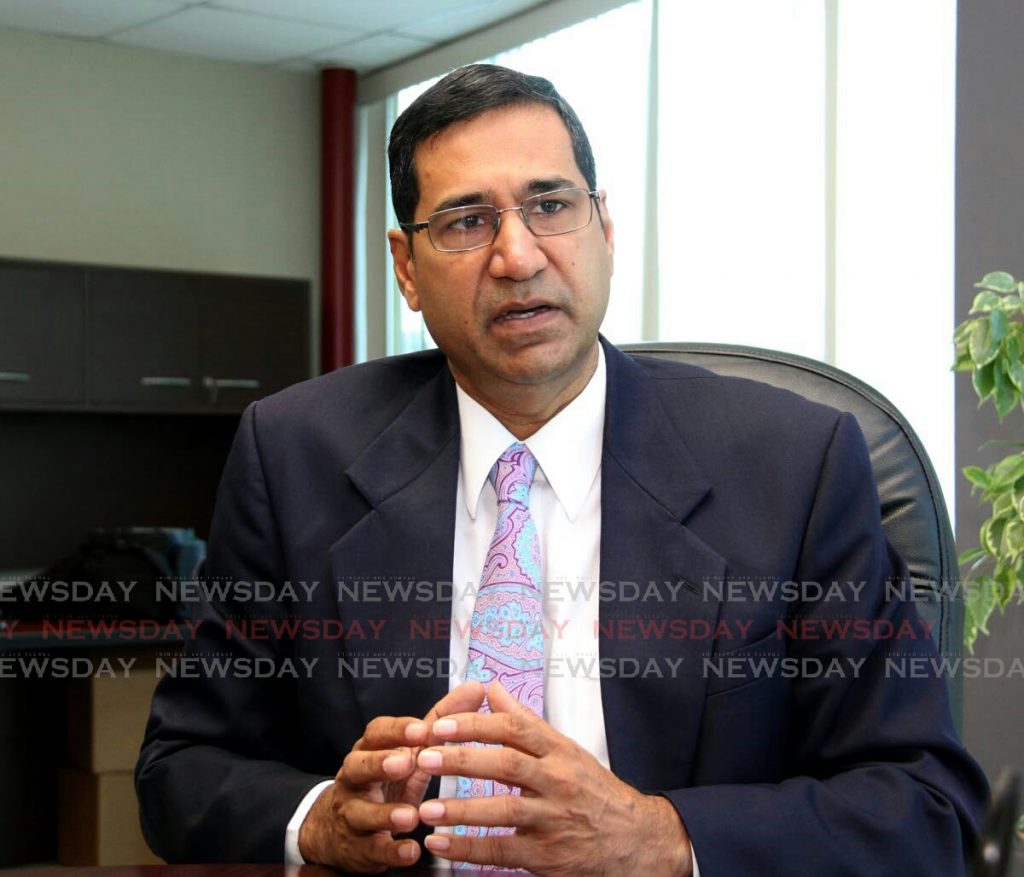Jamadar urges judges: Become better judges

JUDGES of the Supreme Court have been urged to become better judges by retired appellate court judge Justice Peter Jamadar,who on Monday started his tenure as a judge of the Caribbean Court of Justice (CCJ).
Jamadar was celebrated on Wednesday for his 22 years of service to the Judiciary of TT at a special sitting of the court at the Hall of Justice in Port of Spain.
Those in attendance were Chief Justice Ivor Archie, CCJ president, Justice Adrian Saunders, current judges of both the High Court and the Court of Appeal, retired judges, government ministers and diplomats.
Jamadar spoke of the unpopular start to his career as a judge – which earned him the title of “Judge Dread” – and his desire to change.
“I am not sure if I succeeded. I hope I have succeeded,” he said, while reminding his former colleagues, “Judges are not infallible. I was not. Judges can learn to be better judges, but they must be prepared to receive honest feedback to embrace it, to grow out of it.”
He also shared the methodology he used as a judge: curiosity, which he said, was the engine to societal evolution. Jamadar said the ideology of law was constantly evolving and it was up to judges to hold the contrasting perspectives of curiosity – judicial conservatism and judicial activism – in balance to determine the paths they follow.
He also championed the need for judges to be sovereign, independent and impartial by emancipating themselves from their own mental slavery – quoting reggae icon Bob Marley – bias, prejudice, preference, aversions, stereotypical mindsets, political, cultural and class alliances they unconsciously assume.
“We judges are not any more than anyone else,” he said, also acknowledging that judges did not go to their jobs impartial or independent. But, he said, had an ethical responsibility to rid themselves of the plague of having perceptions shift their realities and aspire to independence and impartiality.
“Failure to do so, in my experience, only erodes the public’s trust and confidence in an independent and impartial judiciary…Trust and confidence, once lost, is a most difficult thing to recover or regain. But it is not impossible,” he said.
“True growth requires us to push boundaries…and boundaries can only be broken when there is a desire for something more, a desire to be curious.”
He also said the job of a judge demanded personal, professional and institutional integrity.
“No one is going to trust what you do, if they do not trust who you are,” he said.
Jamadar was remembered by colleague Justice of Appeal Allan Medonca for his academic writings and justification for sabbaticals for judges and the need for them, long before this was adopted as a recommendation by the Salaries Review Commission.
Mendonca said while judges are now eligible for sabbaticals, but were not yet enjoying them, he believed it was only a matter of time for this to be realised, and thanked Jamadar for his contribution.
Also speaking at the special sitting were Attorney General Faris Al-Rawi and president of the Law Association Douglas Mendes, SC, both of whom advocated the adoption of the CCJ as TT’s final appeal court.
Mendes said it was no surprise the Regional Judicial and Legal Service Commission chose Jamadar – the fourth judge from TT to sit on the regional court – but wondered what else was needed to “tip the balance” for TT’s full acceptance of the CCJ.


Comments
"Jamadar urges judges: Become better judges"